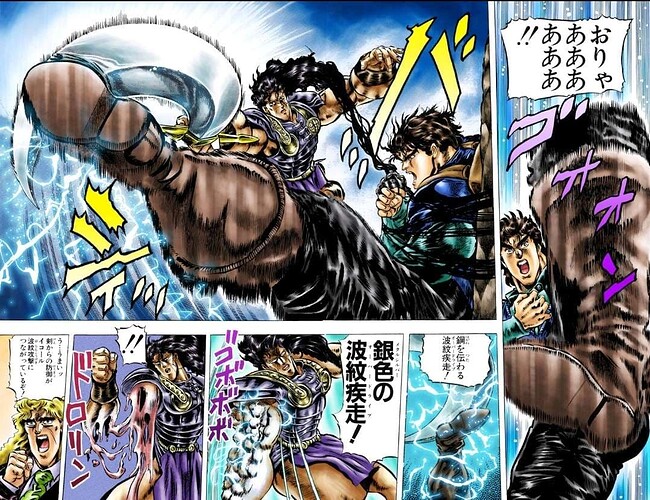My question here concerns Speedwagon’s remark in the bottom left, “剣からの防御がイコール波紋攻撃につながっているぞ!”
First of all, I’m assuming this is all one sentence, but at times it’s hard to tell in manga due to a lack of periods.
Obviously, he’s saying that JoJo’s defense from the sword (lifting his leg) also served as a means for a ripple attack (by conducting it through the steel of the sword), but I’ve never seen イコール used like this. I’ve seen it used after the subject to denote that something is equal to something else (e.g. 恋イコール愛ではない or 彼は富イコール 幸福だと思っている), but I don’t think that’s the case here as the イコール comes after が.
Furthermore, the つながっている at the end also confuses me. につながる is to lead to, right? Can you just say “剣からの防御が波紋攻撃につながっているぞ” ? And if so, why is イコール even here? If anyone has seen sentences with イコール used like this, I’d love to see it, thanks!


